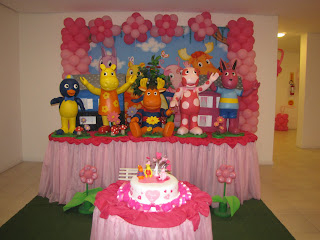

We’ve got less than a week to go before heading back to the U.S. We jokingly named our time here ‘The Year Without Fleece” and “The Endless Summer” (neither being terribly accurate). For the kids, it was almost a year without friends (outside of school time) and play dates (luckily, that has recently changed with the addition of another American family with similarly-aged kids in town). It has been a series of experiments on how to make life easier, the transition smoother. It has also been a constant striving to understand a different language, culture and rules of social engagement. We have made our fair share of mistakes, but we have also learned to move on. If anything, this has been the year of learning patience.
We’ve been here for about ten months and we didn’t go to the Amazon or visit the Pantanal, spend Carnaval in Rio, learn to Samba or do capaoeira. What we did manage to do is navigate a large urban city by foot, bus and taxi, learn to do a lot of improvising, communicate with young and old alike, at times live like rock stars (at least the kids who were people magnets with their blue eyes, blonde-ish hair, and English language), pick up varying degrees of Portuguese, and make a few friends along the way. And Brian’s research (the whole reason we were here!) went incredibly well. Let’s hope it can last him for several years as he writes a second book, numerous scholarly articles, and presents his work at various conferences.
A nice easy thing to say about living abroad with young children is that kids are like sponges and that they just absorb everything. This may be true, but I think it gives little credit to what the kids go through in this process of attaining language and social skills in another country. Young children like stability and routine. And throwing our two kids into a completely different culture and language experience did not necessarily constitute any kind of stability, although we did eventually attain some routine. Considering we gave our kids no Portuguese preparation before arriving here ten months ago, Bas and Ginger have done amazingly well for themselves.
But it’s interesting to see how their personalities have played out in this acquisition. Bas is a perfectionist. He would listen and observe for long periods of time before entering into the ruckus of either the classroom or the playground. It was obvious that he understood almost everything he was hearing, but he wouldn’t speak until he could say it perfectly. And speak perfectly (as well as fluidly and rapidly!) he does. Ginger, on the other hand, is a social being and didn’t let a little thing like language (English or Portuguese) get in her way. She just engaged the kids she would meet in the park or at school in straight-forward play. And this has done her just fine. She does love to sing the songs she learns at school (at full volume), but really, as a three-year old, the path she has chosen here has worked for her and her personality.
As for me, there are lots of things I’ve learned since coming to Brazil last August. Some things have come to me very quickly, others painfully slowly.
Easy?
*Learning that Pandora.com and hulu.com cannot be streamed outside of the U.S. (What did I do without internet all those other times I lived abroad??)
*Putting toilet paper in most Brazilian toilets is a bad idea.
*Appreciating that one-centavo coins (similar to US pennies) are no longer in circulation. Cost is either rounded up or down. How stores balance their books at the end of the day, I have no idea. And why don’t prices reflect this and just have prices ending in zero or five centavos?
*Driving in this country means you better know how to drive a stick. (luckily, my brother taught me on an old VW bug when I was 15)
*Tasting Brazilian peanut butter and realizing that it just isn’t the same as the American kind. Ditto for making homemade chocolate chip cookies – similar ingredients but different result.
*Realizing that it’s not safe to cross that side street just because it looks like no one from the lane nearest you is turning. Plenty of cars cross lane(s) of traffic to make a right-hand turn.
*Discovering that cheering for the underdog is purely an American past-time.
*Surviving in the kitchen without lots of fancy appliances (make toast on the stove, rice without a rice cooker, re-heat food on the stove without a microwave, make chocolate chip cookies and banana bread without a mixer in an oven whose temperature varies greatly, make black beans from scratch (you mean they don’t naturally come from a can?), popcorn on the stove top, etc. And there is life without a dishwasher or dryer (but I do miss hot water in the faucets and washing machine)
*Recognizing that there are Portuguese words that seem close to an English equivalent but do not mean the same thing (ex: lanche seems like lunch but actually means snack; puxe (pronounced push-eh) sounds like push but actually means pull – this one has led to some amusing moments)
*Noticing that when a product says ‘sugar-free’ or ‘without sugar’ it doesn’t actually mean that. The harder part has been learning ALL the different types of artificial sugars used in this country. Shelves of saccharine-sweet grossness all along Aisle 9!
*Being content… it did not come quickly, but once the kids started spending some time at pre-school, I had the chance to do some things for myself, like Ashtanga yoga at a local studio and meet up with friend Julie for our weekly coffee (ok, orange juice and empada) break, and suddenly life seemed so much better.
Hard?
*Offering something to Brazilians and having them say ‘obrigado’ (thank you) which actually means ‘no thank you’ in this case. This might be accompanied by a barely perceptible shake of the head, but sometimes not even that.
*Learning patience for Latin Americans’ sense of time. By the last month here, I purposely would leave my house either at the proposed meeting time or a good 5- to 10 minutes later so I wouldn’t have to wait around too long on my own.
*Finding a place to break the large bills (R$50’s and R$100’s) the ATM spews out. I understand mom & pop stores having problems (although breaking a R$10 or R$20 should not be cause for alarm), but large grocery and department stores? And standing an hour in line to have a bank teller do it doesn’t appeal to me either.
*Trying to convince Brazilians that learning Portuguese is not any harder than learning other languages. Perhaps it’s because spoken Brazilian Portuguese is so informal/different than formal (or one could say ‘correct’) written Portuguese that Brazilians feel that it is more of a challenge?
*Under-valuing the middle name in Brazil. When I was filling out paperwork for my national registration as a foreigner (RNE) the first time I lived in Brazil, I simply listed my parents’ names by first and last name. This time I included their middle names. Well, the Federal Police didn’t take kindly to that. I was two different people in their eyes. It took a special Consular note from the US Consulate in Rio and several months of processing to appease the bureaucrats in Brasilia. In the meantime, I have noticed that PHONEBOOKS are listed not by last name but by first and middle name followed by last name. And when your name is called (at the doctor, etc), it is by first and middle name. I get it now.
*Attempting to decipher road signs’ true meanings. It seems that Brazilian postings are friendly reminders for those who already know where something is more than true guides to finding anything new.
*Struggling to understand when an invitation is really an invitation. It turns out that unless there is a definite time AND place associated with said invitation, it is more likely a polite way of drawing a conversation to an end. I’d have to say this knowledge would have been very useful earlier on.
Yes, there have been many ups and downs. But I’d have to say that, overall, this has been a positive learning experience and given the chance, I’m sure we’d do it again (say in six or seven years when Brian’s up for sabbatical again!)









